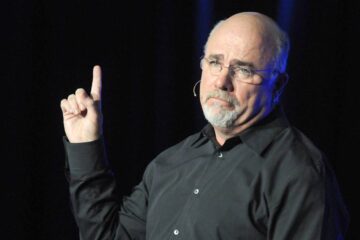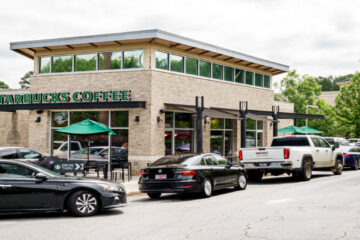The past year has been very hard on big retail brands, with a number of major names filing Chapter 11, then not being able to reorganize their businesses.
Normally, a Chapter 11 filing buys the retailer time to find new funding and negotiate deals with its vendors. In many cases, those vendors want the retailer to survive and might make concessions to help make that happen.
Sometimes that leads to positive results like Party City and David’s Bridal, which were able to emerge from bankruptcy with less debt and at least a chance of long-term survival.
DON’T MISS: Bankruptcy watch: Another beloved brand faces a cash crunch
That was not the case, however, for Bed Bath & Beyond, Christmas Tree Shops and Tuesday Morning. Those chains were unable to find a way to continue operating and moved into Chapter 7 liquidation.
When that happens, sales at stores are held and then any assets the company owns are then sold off to pay off creditors. Bed Bath & Beyond, for example, saw its name, website and brand purchased by Overstock.com. All the Bed Bath stores closed, but Overstock changed its name to Bed Bath & Beyond, keeping the name alive.
That’s so far not the case for Tuesday Morning and Christmas Tree Shops, which have liquidated their merchandise but have not auctioned their names and intellectual property.
Now, another major retail name has filed for Chapter 11. You may not know the brand itself, but its products are sold at Amazon, Walmart, Costco, Wayfair, Overstock, Target, and Home Depot.
That’s a murderer’s row of retail greats, which all now face the risk of losing Noble House as a partner.
Wayfair is one of the company’s partners.
Image source: Suzanne Kreiter/The Boston Globe via Getty Images
Noble House files Chapter 11
While retail partners can often help a vendor escape liquidation by agreeing to new terms, that may not help Noble House. That’s because the furniture company’s big-name partners are not its biggest debtholders.
Instead, the company said in its bankruptcy filing that “trade debts from importers and vendors in China and Vietnam make up a majority of the largest claims by the company’s unsecured creditors,” Retail Dive reported.
Noble House may not be a well-known name, but the company does business with a lot of major brands under a few different brand names that consumers might recognize.
“The company is a distributor, manufacturer and retailer of indoor and outdoor home furnishings with distribution throughout ecommerce channels including partners such as Amazon, Walmart, Costco, Wayfair, Overstock, Target and Home Depot, fulfilling direct to consumer orders from its distribution centers,” according to its bankruptcy filing.
“Family-owned since its founding in 1992, the company designs, markets and sells products under several brands including Christopher Knight Home, NobleHouse, LePouf, OkiOki, Best Selling, and GDFStudi.”
In addition to its e-commerce partners, Noble House also sells through wholesale channels, primarily to TJMaxx, Home Goods, Marshalls, and Ross Stores.
What’s next for Noble House?
The company has asked for and received court permission to make emergency payments to keep its key suppliers willing to ship to the company and stopping warehouses from seizing completed goods.
“The debtors have sufficient funds to pay the amounts described in this motion in the ordinary course of business by virtue of expected cash flows from ongoing business operations and anticipated access to cash collateral and proposed debtor in possession financing,” the company shared in its bankruptcy filing.
Noble House plans to sell itself in order to remain a going concern.
“The company entered bankruptcy with a baseline bid from the logistics and technology firm GigaCloud Technology to buy it for $85 million,” according to RetailDive.
A court would have to approve any sale and higher bids could come in. David’s Bridal avoided liquidation by finding a buyer to take over the company, which a bankruptcy court decided was a better outcome for stakeholders than a Chapter 7 filing.


